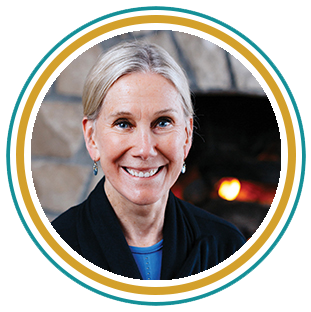God did more than simply create us to be in close relationships. When God created us and when Jesus died on the cross for us, we were commissioned to do God’s work. In Genesis, we are commissioned to have authority over the earth and to care for it. With sin in the world, Jesus gave us a more focused purpose, and that purpose is twofold. We are set apart and commissioned by Christ to both “Go” (Matthew 28:18-20) and “Abide” (John 15:1-17).
Go therefore and make disciples of all nations, baptizing them in the name of the Father and of the Son and of the Holy Spirit.
Matthew 28:19
Abide in me as I abide in you. Just as the branch cannot bear fruit by itself unless it abides in the vine, neither can you unless you abide in me.
John 15:4
Jesus commissioned his disciples twice: once before he was taken away to be tortured and hung on a cross, and once before he ascended into heaven and was taken away a second time. Both times, the disciples were confused. Yet both commands were given by Jesus to explain our purpose when he was no longer physically present. Jesus expects us to carry on for him, and he told us what to do. He trusts us to be his friends, in purpose and in relationship.
Our fundamental work is to “go . . . and make disciples” and to “abide” in Christ. One is active, requiring work, and the other is passive, requiring rest. Both are necessary. Both are Jesus’ command to us. Both are our urgent business, though I doubt that we give them the same amount of effort and heart. Mentoring and abiding in Christ go together. Mentoring doesn’t necessarily occur in small groups and among friends.
Jesus came to bring the whole gospel to the whole world. The whole gospel is the Good News of our salvation. We can do nothing to commend ourselves to God. God alone is our hope and our salvation. Jesus alone is our rock. The gospel is not a “busy” gospel. It is not an “accomplishment” gospel. The whole gospel is the whole of who Jesus is and what he did for us. Jesus came to be the Good News and to bring the Good News. Thus, evangelists and leaders are to both be the Good News (by abiding in Christ) and bring the Good News (by fulfilling the great commission).
The gospel is not a “busy” gospel. It is not an “accomplishment” gospel. The whole gospel is the whole of who Jesus is and what he did for us. Jesus came to be the Good News and to bring the Good News.
Tweet
Most Christian leaders are pretty adept at the “going and making” part of Jesus’ command. And of course, there are always ways to improve our witness and ministry effectiveness. We should continuously study and do whatever is necessary to be the athletes who run the race to win for Jesus’ sake. Most trainings, gatherings, and conferences focus on the work of “going and making.” All of this is hugely important and necessary. I have met Christian leaders and influencers who—at great personal cost and expense—have chosen to study or attend a conference to learn. This is holy to me, and I believe it is holy to God.
In God’s eyes, it is not enough to fill our days with God’s business, however. This is precisely why God instituted a Sabbath, a day set aside for rest. In the very fabric of creation, God ordained a day of abiding and a cessation of doing. The Sabbath is a day that we admit that only God is Lord and that he can accomplish his purposes in the world. It is a day that we recognize our humanity, humbly unhook ourselves from the machine of doing, and put God at the center.

I met a leader from Uganda who had been busy about God’s Kingdom for ten years in a very large organization doing very important work. He confessed that he never took a Sabbath or a holiday and that he had never been present for even one of his children’s birthdays because of his travel schedule. This confession seemed very tragic to me. We all can fill up our time “going and making.” This is not hard to do because we begin to view our worth and status as emerging from our busyness, not our rest.
This is why I believe that Jesus publicly announced our purpose to “go and make disciples” but privately commanded his disciples to “abide.” In the sanctum of their relationship, around a table, breaking bread and drinking together, he shared his most urgent, important commands about how the disciples were to go about mission. He modeled it with his life: Jesus often went off to pray and be alone, by himself or with a few of his closest disciples.
Being busy is easy; being still is hard. #lifelongleadership #mentoringcommunities
Tweet
He expected, even commanded, that abiding in him was the only way to bear fruit. Being busy is easy; being still is hard. The command to abide is difficult. There is no external reward or value in abiding in Christ. People wonder what we are doing. People ask for an account of our time. Unfortunately, abiding in Christ is not as valued today as being busy for Christ.
The problem is twofold. We don’t take the time to be apart with Christ, and we wouldn’t know what to do in that time if we did. What exactly does it mean to abide? The usual understanding is taking time each morning or sometime in the day to study our Bibles and have Intercessory Prayers. But even those two actions can often become things we do for God, rather than simply being with God. In my book Lifelong Leadership, I identify silence, solitude, Listening Prayers, and Bible reflection in community as precisely those opportunities to abide in Christ. Mentoring Communities are places where we can be in safe communities, where we can share about our “going and making” but also experience abiding together and hold each other accountable for our abiding.



